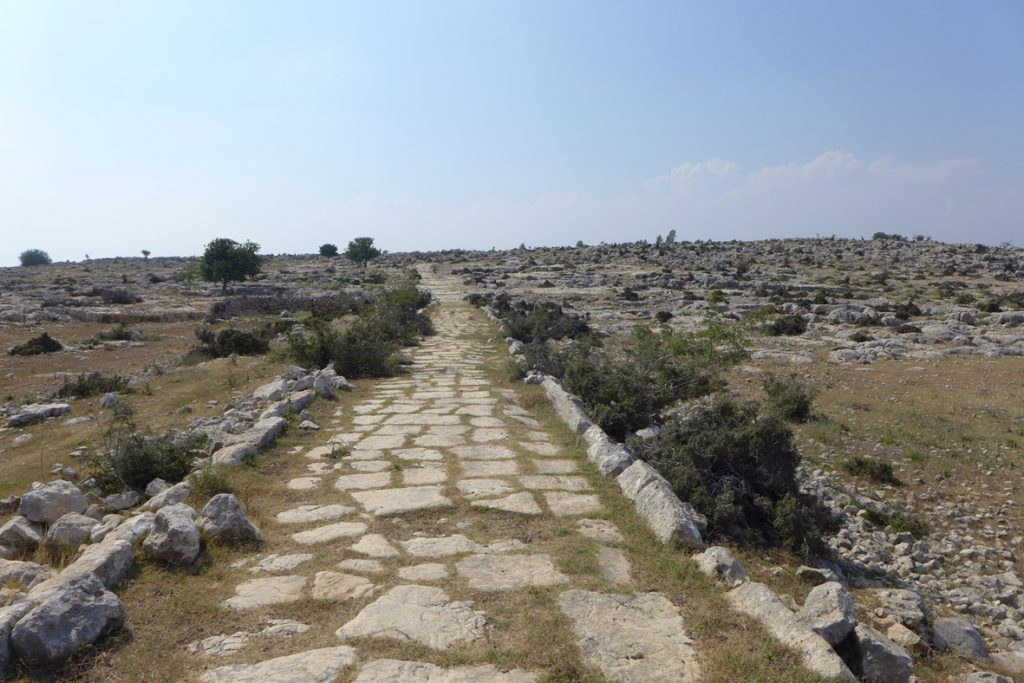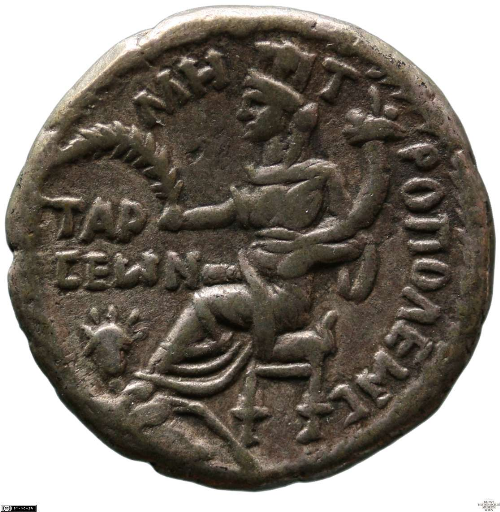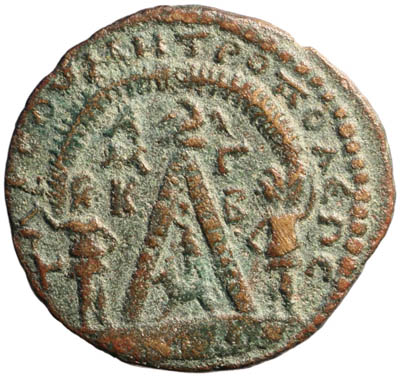Tarsos in Cilicia – best known today as the birth place of the Apostle Paul – was one of the most important administrative, political and cultural centres of ancient Asia Minor. The city asserted its supremacy among the cities of eastern Cilicia vying for political and economic power amid ever-changing political conditions and shifting power structures from the Persian conquest to late antiquity.

The postdoctoral research project at the DAI’s Commission for Ancient History and Epigraphy explores this phenomenon and the underlying conditions, and also considers the question of the emergence and shaping of local urban identity and how it was perceived. Important information is provided by the substantial coinage of Tarsos, e.g. concerning the city’s cults and foundation myths and its strategies of self-presentation in general.

Reverse of a silver coin from Tarsos minted under Emperor Hadrian (117–138 AD) and showing a seated Tyche of the city with a mural crown, cornucopia and palm branch, and with her foot on the river god Kydnos (Münzsammlung des Kunsthistorischen Museums Wien, Objektnr. ID106454, CC BY-NC-SA 4.0; RPC III 3259) 
British Museum Collection, Objektnr. L1899,01/02.81, CC BY-NC-SA 4.0; BMC 305
The philosopher and orator Dion of Prusa, who visited the city towards the end of the 1st / beginning of the 2nd cent. AD, gave a speech in public (or. 33, 47) in which he mentions that a pyre is to be erected as part of ritual celebrations of Sandan-Herakles, a divinity venerated in Tarsos. Images on the reverse of coins minted in Tarsos, like the bronze coin from the reign of Emperor Trajanus Decius (249–251 AD) reproduced above, show this pyre in the form of a pyramid; in the interior is a cult image of the god standing on a mythical creature (British Museum Collection, Object no. L1899,01/02.81, CC BY-NC-SA 4.0; BMC 305). The legend refers to the titles πρώτη, μεγίστη, καλλίστη (“first, greatest, fairest”) – abbreviated to AMK – which Tarsos held during the imperial period and were intended to communicate its prestige.